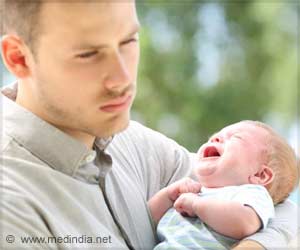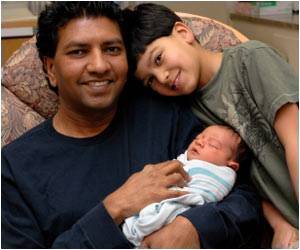Impact of fathers' mental well-being on child development remains a relatively uncharted territory and is explored by a recent study.

Longitudinal associations between paternal mental health and child behavior and cognition in middle childhood
Go to source). Now, a team of researchers affiliated with different institutions across Quebec, Canada has examined if paternal anxious and depressive symptoms, measured during their partner’s pregnancy, and again six to eight years later, are associated with children’s cognitive function and behavior.
‘Do mild depressive and anxiety symptoms in fathers predict behavioral and cognitive problems in their children? Read on to know more.
#fathers, #depression, #anxiety, #children
’





They studied this association in a community sample, where parental levels of self-reported anxious and depressive symptoms were variable and typically less severe than among a clinically diagnosed population. “Our findings show that fathers’ reported symptoms of anxiety and/or depression were not associated with worse behavioral and cognitive outcomes in their children, as previously found in other studies,” said the study’s first author, Dr Sherri Lee Jones, a research associate at Douglas Research Centre at McGill University.
“More specifically, slightly higher levels of depressive symptoms reported by fathers when their partner was pregnant were associated with fewer behavioral difficulties in their child at about six to eight years of age.”
The first assessments, made during pregnancy and in infancy, included parental mental health and psychosocial measures, such as the parents’ highest level of education, relationship satisfaction, and parenting perceptions.
The second assessment was conducted at the critical age of six to eight years when children are expected to make increased use of their behavioral and cognitive skills.
Advertisement
Breaking Stereotypes, Revealing Connections
Higher symptoms of anxiety and depression among mothers were associated with adverse childhood behavioral outcomes, both at birth and during middle childhood.In contrast, slightly higher, but still mild, depressive symptoms among fathers during the pregnancy were associated with fewer behavioral and emotional difficulties in children aged six to eight years.
Advertisement
These slightly higher symptoms of anxiety and depression among fathers when measured in childhood, and their associations with the child’s performance on a standardized IQ test are in contrast to the patterns found among mothers.
“It is unclear why we do not find a similar pattern for fathers as we do for mothers; namely that the father’s reports of anxiety and depressive symptoms were not necessarily linked to poorer child outcomes,” Jones said.
None of the factors the researchers examined could explain the associations between the father’s mental health symptoms and the child’s outcomes.
More studies are needed to understand the respective roles and the combined contribution of parents in child development, the researchers said.
They further pointed out that their findings are based on a community sample. Parents self-reported varying levels of anxious and depressive symptoms and didn’t receive a diagnosis by a mental health professional, which might mean that the findings may not be generalizable to parents who are experiencing clinical levels of depression and anxiety.
“We believe that this study will enhance our understanding of how a child’s development might be influenced by the relative and combined mental health symptoms of both the mother and father, which exhibit a lot of individual variability,” Jones concluded.
Reference:
- Longitudinal associations between paternal mental health and child behavior and cognition in middle childhood - (https://www.frontiersin.org/articles/10.3389/fpsyg.2023.1218384/full)
Source-Eurekalert















